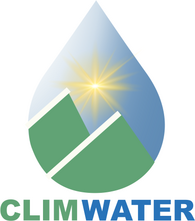CLIMWATER - Assessment of climate impacts on water resources in Uzbekistan: implications for agriculture and the water sector
CLIMWATER Project (Climate Impact Assessment on Water Resources in Uzbekistan: implications into agriculture and hydropower sectors) is collaborative project between scientific institutions from Germany and Uzbekistan. The project is financed by the Federal Ministry of Education and Research of Germany (BMBF) and the Ministry of Higher Education, Research and Innovation of the Republic of Uzbekistan. The CLIMWATER Project was launched on January 1, 2023 and will last until December 31, 2024. The partner institutes of the CLIMWATER Project are the GFZ German Research Center for Geosciences (GFZ Potsdam), Humboldt University to Berlin (HUB) and Environmental Research Centre (UFZ Leipzig) from Germany and Tashkent Institute of Irrigation and Agricultural Mechanization Engineers (TIIAME) - National Research University (NRU), Hydrometeorological Research Institute (NIGMI) under the National Hydrometeorological Service of Uzbekistan and the National University of Uzbekistan named after Mirzo-Ulugbek (NUU).
The goal of the project is to strengthen the collaboration between German and Uzbek scientists by conduction scientific research on the impact of climate change on water resources in Uzbekistan. The Chirchik River Basin, located not from the capital city Tashkent, is chosen as a study area in this project. Since the water flow of the Chirchik River is used for agricultural as well as hydropower production purposes by storing water in the Charvak reservoir, the implications of the climate impact on these two sectors will also be studied thoroughly in this project. We apply hydrological models to simulate future climate scenarios to quantify expected changes of hydrological regime in the Chirchik River. Since the river flow in the Chirchik River is formed mainly due to snowmelt and glacier melt in the basin, we conduct annual glacier expeditions to the Pakhtakor Glacier, the largest glacier located in this river basin, to collect mass balance data as well as use satellite-based snow cover data to calibrate and validate hydrological models.
The capacity building of young generation is an important aspect of the project. In the frame of the project, Young Scientist Schools (YSS) will be organized jointly with the TIIAME NRU in Tashkent, Uzbekistan. Moreover, research stays of partner institutes from Uzbekistan at the German partner institutes will take place in the frame of the project.
The expected outcomes of the project shall be disseminated to policy making level towards the end of the project. The achieved results will be used to prepare a policy brief in a user-friendly format and distributed to respective ministries and water related organizations in Uzbekistan.
The working packages of the project are:
- Processing and analysis of future climate scenarios
- Hydrological simulation of future climate scenarios
- Groundwater analysis and isotope studies
- Capacity building and research stays
- Dissemination of project outcomes to the policy level
The CLIMWATER Project is coordinated by GFZ Potsdam from Germany side and by TIIAME NRU from Uzbekistan side.
Partners :
• GFZ German Research Centre for Geosciences (Dr. Abror Gafurov)
• Tashkent Institute of Irrigation & Agricultural Mechanization Engineers National Research University (TIIAME-NRU– Prof. Abdulkhakim Salokhiddinov)
• Humboldt University to Berlin (Prof. Tobias Sauter, Phillip Schuster)
• UFZ Leipzig (Dr. Stefan Geyer)
• National University of Uzbekistan (Dr. Gulomjon Umurzakov)
• Hydrometeorological Research Institute (NIGMI), Uzhydromet
• Innovation and Scientific Research Cluster (Mr. Mamanbek Reimov)


